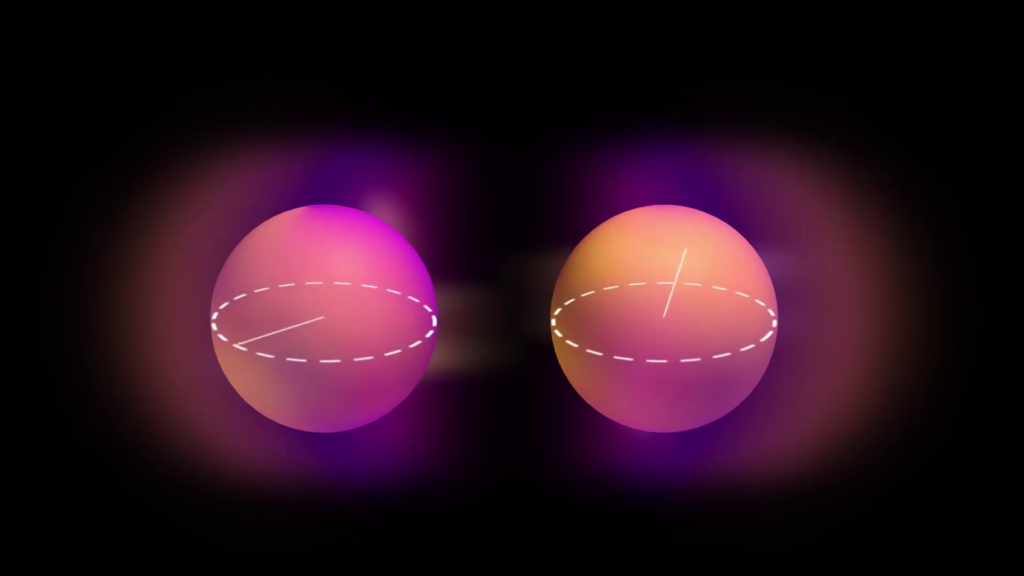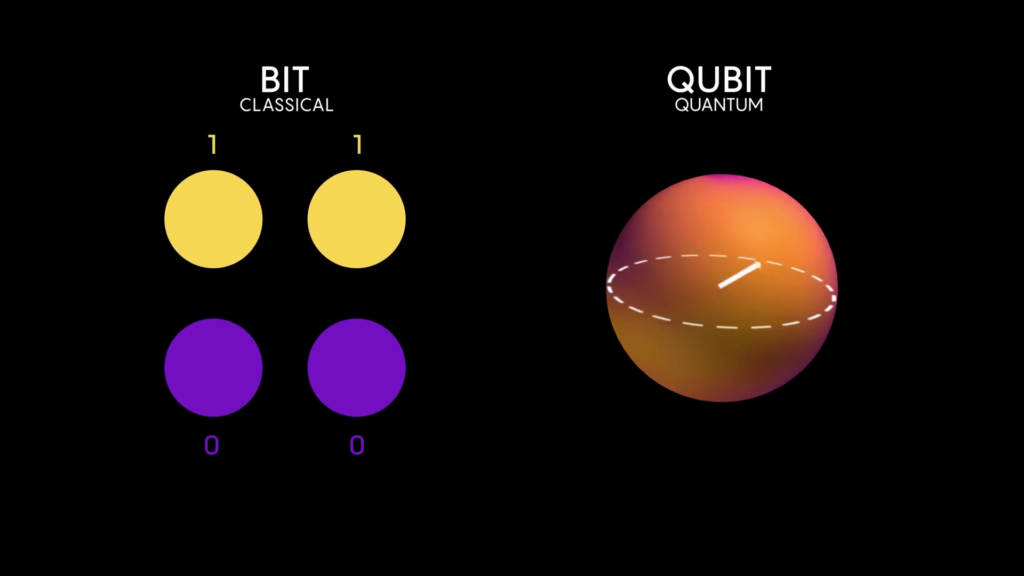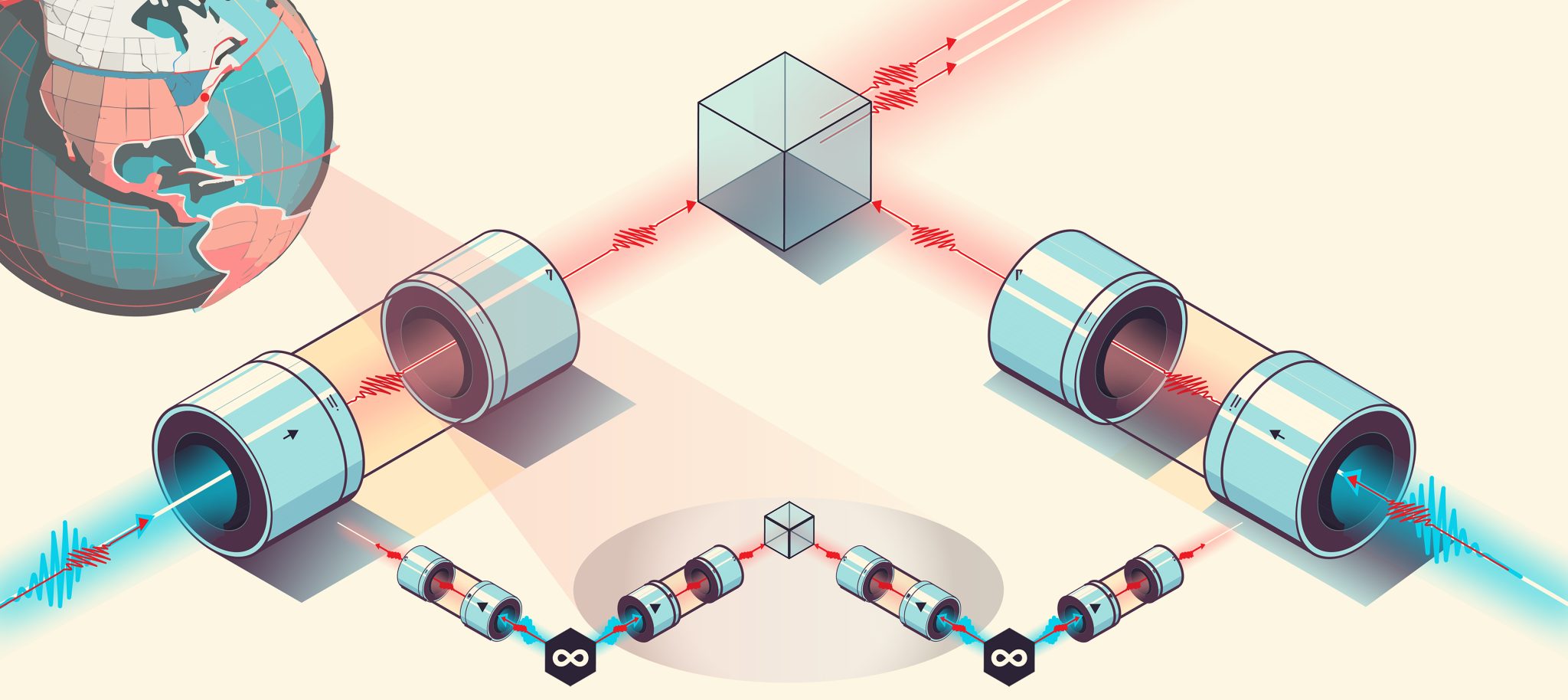





- Key Distribution: In QKD, the encryption key (the secret code used to lock and unlock messages) is sent as a series of qubits. Due to the superposition principle, each qubit can exist in multiple states until it is observed.
- Observation Changes Everything: The most important rule of quantum mechanics is that observing a quantum system changes its state. This means that if a hacker tries to intercept the encryption key during transmission, the act of measuring the qubits will disturb their state. Both the sender and the receiver will instantly know that the key has been tampered with.
- Tamper-Proof Communication: If the key is altered, the communication will stop, and the sender and receiver will start over. The hacker cannot remain undetected, and no data is lost or stolen.

- Technological Barriers: Quantum systems are incredibly delicate. Qubits are highly sensitive to environmental factors like temperature and electromagnetic fields. Even the slightest disturbance can cause a qubit to lose its quantum state (a phenomenon known as decoherence). This makes it challenging to build stable quantum networks.
- Distance Limitations: Currently, quantum communication can only be carried out over relatively short distances. Scientists are working on developing quantum repeaters to extend the range of quantum networks, but this technology is still in the experimental phase.
- Cost and Infrastructure: Building a quantum internet will require entirely new infrastructure. Today’s internet relies on classical optical fibre networks, but quantum networks need specially designed hardware, including quantum routers and repeaters. The cost of building and maintaining this infrastructure could be prohibitively high in the short term.
- Quantum Memories: For a fully functional quantum internet, we need reliable quantum memories—devices that can store quantum information for long periods. Developing quantum memories that are stable and can hold information without losing it is a significant scientific hurdle.




https://SellAccs.net provides bulk verified accounts that are perfect for all your social media needs. Our PVA accounts are created with different server IPs, ensuring they work effectively across various platforms. Trust us for secure, fast access to high-quality accounts every time.
Check Now:
https://SellAccs.net
My Sincere Thanks!
We are a large team of pentesters and we know how to cash out your company’s DATA. Yours 80% from the deal (from 10k$-200k$). Everything is absolutely safe and anonymous for the company employee. For further instructions, write to Telegram bot t.me/Faceless_Syndicate_bot
Today, I went to the beach front with my children. I found a sea shell and gave it to my 4 year old daughter and said “You can hear the ocean if you put this to your ear.” She put the shell to her ear and screamed. There was a hermit crab inside and it pinched her ear. She never wants to go back! LoL I know this is completely off topic but I had to tell someone!
I’m not that much of a online reader to be honest but your sites really nice, keep it up! I’ll go ahead and bookmark your site to come back down the road. Cheers
I was wondering if you ever considered changing the layout of your blog? Its very well written; I love what youve got to say. But maybe you could a little more in the way of content so people could connect with it better. Youve got an awful lot of text for only having one or 2 pictures. Maybe you could space it out better?
I’ve been browsing on-line more than 3 hours these days, yet I never discovered any interesting article like yours. It?¦s lovely value sufficient for me. In my view, if all web owners and bloggers made good content as you probably did, the web will be a lot more useful than ever before.
I am often to running a blog and i actually appreciate your content. The article has really peaks my interest. I am going to bookmark your website and preserve checking for brand new information.
Along with almost everything that seems to be building throughout this specific subject material, your perspectives are generally somewhat stimulating. On the other hand, I am sorry, because I do not give credence to your entire theory, all be it exhilarating none the less. It looks to us that your remarks are generally not completely validated and in simple fact you are generally your self not really thoroughly confident of the point. In any event I did enjoy reading it.
I have read some excellent stuff here. Certainly price bookmarking for revisiting. I surprise how so much attempt you set to create such a great informative web site.
Thanks for another great article. Where else could anyone get that kind of information in such an ideal approach of writing? I have a presentation next week, and I am on the look for such info.
I’d must check with you here. Which is not something I often do! I get pleasure from reading a put up that can make individuals think. Additionally, thanks for allowing me to comment!
Rattling informative and wonderful complex body part of content, now that’s user friendly (:.
There is visibly a lot to identify about this. I suppose you made various good points in features also.
Happy to explore discussions, exchange ideas, and gain fresh perspectives throughout the journey.
I like hearing diverse viewpoints and sharing my input when it’s helpful. Always open to fresh thoughts and connecting with others.
That’s my web-site:https://automisto24.com.ua/